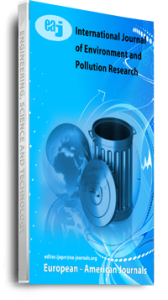Greenhouse studies were conducted to determine the ability of plant Amaranth, Amaranthus caudate and two isolated bacterial strains from rhizosphere region for cleaning up glyphosate residues in soil and plants. The analytical study of the biodegradation of glyphosate was carried out in the laboratory conditions. Amaranth, Amaranthus caudate and two isolated bacterial strains namely Pseudomonas aeruginosa and Bacillus megaterium could degrade glyphosate in 5 days. These results suggested that phytoremediation could accelerate the degradation of glyphosate residues in plants and in rhizosphere region as well. Glyphosate had strong effect on bacterial DNA where many DNA bands were affected. This could be explained that the effect of herbicide glyphosate on the protein profile may reflex somehow DNA mutation occurred during the assimilation of those toxic compounds. Therefore, the alteration occurred in both DNA and protein profiles is considered a degree of tolerance that lead to DNA mutation to cope with the assimilation of this compound. Therefore, the phytoremediation way could be a promising tool in program is to protect public health and the environment by ensuring the safety and availability of herbicides and pesticide alternatives.
Keywords: Amaranthus caudate, Bacillus megaterium, Glyphosate, Phytoremediation, Pseudomonas aeruginosa

